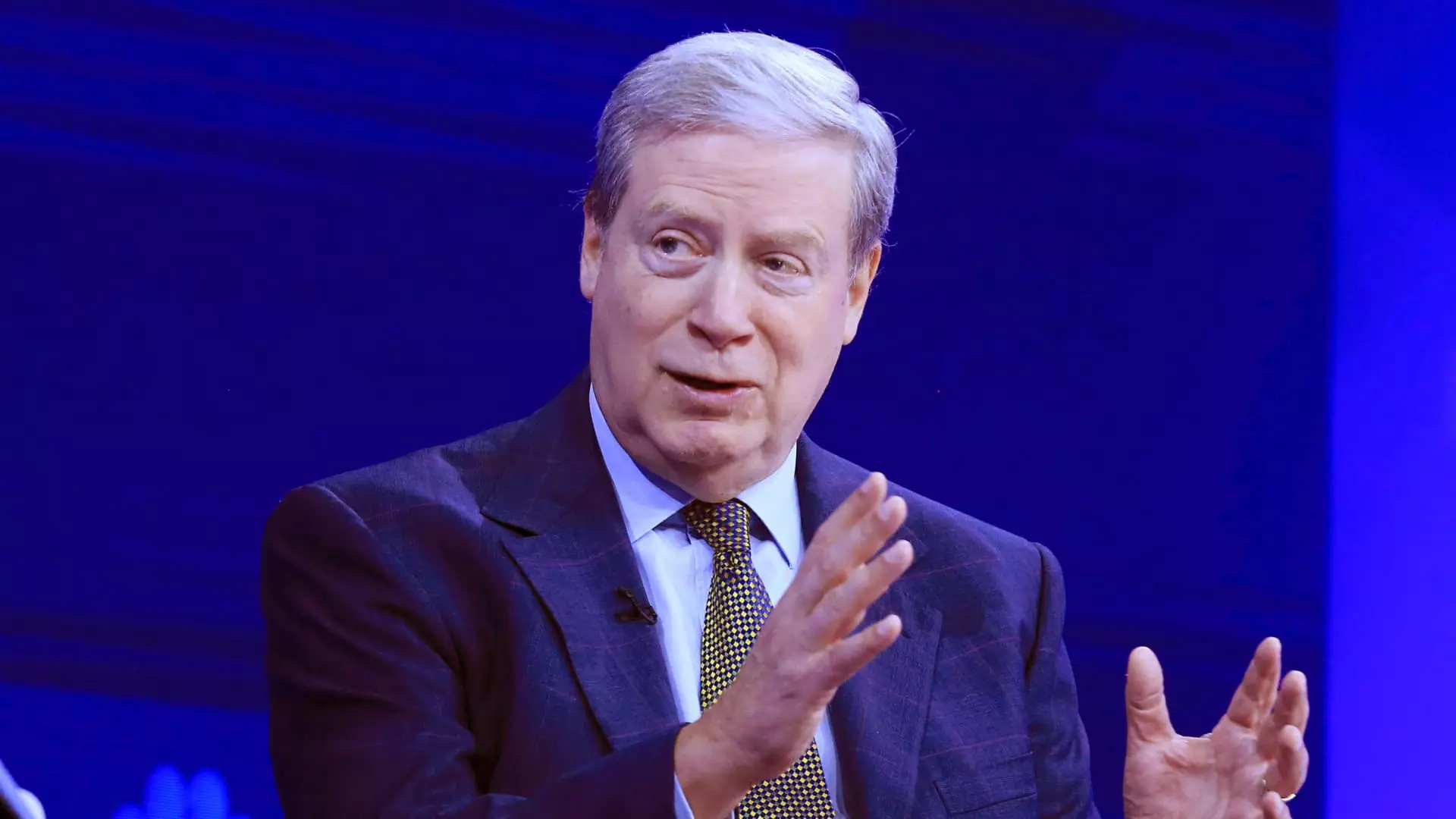The financial landscape often mirrors the sentiments of prominent investors, and Stanley Druckenmiller’s recent reflections on Donald Trump’s re-election are no exception. As a seasoned billionaire and the head of Duquesne Family Office, Druckenmiller paints a picture of renewed vigor and speculative enthusiasm in the markets. He articulates a significant shift from an administration deemed “anti-business” to one that has reignited enthusiasm and optimism among corporate leaders. His observations suggest that this shift is not merely superficial; rather, it indicates a deeper-rooted change in business sentiment, with many CEOs oscillating between relief and outright jubilation concerning the economic trajectory.
Druckenmiller’s assertion that CEOs are experiencing a profound uplift is noteworthy. It underscores the psychological element often overlooked in economic analyses—the so-called “animal spirits.” This term, coined by economist John Maynard Keynes, refers to the human emotions that drive consumer and investor behavior. In this case, it appears that the re-election of Trump has catalyzed a renewed collective optimism among corporate leaders, which could have wide-reaching implications for the economic climate over the coming months.
While Druckenmiller expresses a generally bullish outlook on the economy, he tempers his enthusiasm with a cautious approach regarding stock market investments. His concerns regarding elevated bond yields illustrate the complexities of the current economic environment. Yield dynamics are a crucial factor that investor strategies must reconcile, especially in light of a strong economy that typically raises expectations for bond yields. Druckenmiller frames his perspective appropriately when he states that “it’s complicated.” This encapsulates the duality facing investors—an economy primed for growth, contrasted against the backdrop of potentially rising bond yields.
His strategy, involving a short position against Treasury bonds, reveals a thoughtful and strategic approach that prioritizes nuanced risk management. Unlike many investors who may impulsively react to market trends, Druckenmiller emphasizes calculated positions that consider broader economic signals. This level of engagement reflects an understanding that the interplay between strong economic indicators and market reactions is intricate and requires a keen eye for detail.
Druckenmiller’s analysis of the S&P 500’s impressive nearly 6% surge following Trump’s victory reveals critical insights into current market behavior. With gains exceeding 23.3% in 2024 alone, the index has been propelled by investor confidence in Trump’s proposed tax cuts and deregulatory measures. However, while the broad indices might shine, Druckenmiller wisely pivots away from blanket optimism by focusing on individual stocks.
His belief that sectors benefiting from advancements in artificial intelligence are worth watching speaks volumes about the future of productivity and cost efficiency. The mention of technology investments, particularly in AI, indicates a strategic pivot many investors are considering. By choosing to eschew major tech stocks like Nvidia and Microsoft in favor of unannounced companies poised to benefit from AI advancements, Druckenmiller showcases a discerning approach to stock selection.
Another crucial aspect of Druckenmiller’s insights involves his views on Trump’s trade policies. While acknowledging the potential risks associated with punitive tariffs—retaliatory actions and inflationary pressure—he balances these concerns with a pragmatic view of tariffs as necessary revenue generation tools. This perspective reveals an understanding of the wider implications tariffs can have on domestic fiscal challenges.
Druckenmiller’s framing of tariffs as a “consumption tax” places them within a broader economic context, emphasizing the potential benefits without downplaying the risks. His thoughts resonate at a time when the implications of trade strategies are being analyzed closely by economists and investors alike. As discussions unfold regarding gradual increases in tariffs, the uneasy balancing act between generating revenues and staving off retaliation remains a tantalizing topic for market watchers.
Stanley Druckenmiller’s commentary encapsulates an essential moment in the intersection of politics and investing. The optimism surrounding Trump’s administration may provide a fresh wind at the backs of investors, though caution regarding the nuanced dynamics of yields and individual stock performance is equally crucial. As the market continues to react to unfolding political and economic narratives, the contributions from seasoned investors like Druckenmiller will undoubtedly shape ongoing discussions about the future of finance in a changing landscape.

